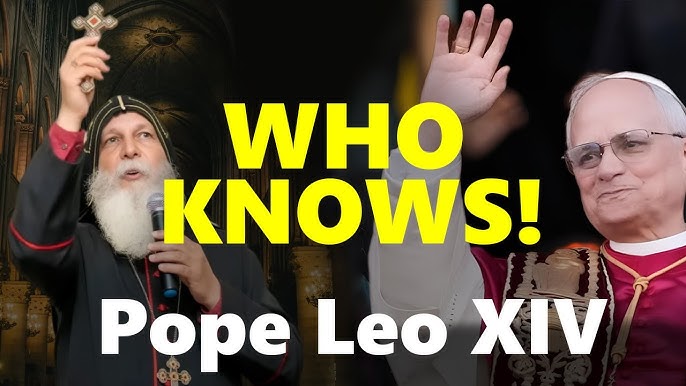When people imagine the life of a man in the Vatican, thoughts of fame, luxury, or power often come to mind. However, one of the most influential figures in the Catholic Church today, Pope Leo XIV, chose a different path: one of humility, discipline, and service over wealth and recognition. His lifestyle might surprise you.
Early Life and Calling
Pope Leo XIV wasn’t born into royalty or raised with political connections. He grew up in the suburbs of Chicago, surrounded by a loving and diverse family. While many chased success and the spotlight, Pope Leo XIV quietly followed a different calling. This path led him from small American parishes to the remote villages of Peru, and eventually to the sacred halls of the Vatican. Despite his high status in the church today, he still lives with the heart of a humble missionary.
Pope Leo XIV was born on September 14th, 1955, in Chicago, Illinois. His life was shaped by a rich cultural background. His mother, Mildred, came from a Creole heritage with roots in New Orleans, and his father, Lewis, was a decorated World War II veteran and a respected educator. Growing up in a diverse and value-driven household, Pope Leo XIV learned early about service, family, and faith. He wasn’t born a saint or a genius; he was like many of us, playing with his brothers, singing in the church choir, and serving as an altar boy. However, even at a young age, there were signs that he was different. He didn’t just attend mass; he acted it out at home, pretending to be a priest. For some, this would be a childhood phase; for Pope Leo XIV, it was the beginning of a lifelong journey.
Education and Dedication
Pope Leo XIV’s academic path began at St. Augustine Seminary High School. There, he wasn’t just a good student; he was exceptional. He consistently made the honor roll, was a student leader, and even edited the school’s yearbook. What set him apart wasn’t just his grades; it was his quiet discipline and sense of purpose. He later earned a degree in mathematics from Villanova University, followed by a Master of Divinity and a doctorate in Canon Law from top Catholic institutions. While others used their education to chase power or money, Pope Leo XIV used his knowledge to understand the structure of the church and improve how it served its people. For example, while studying in Rome, he didn’t just learn the law; he focused on how local leaders within the church could serve better. This shows that even as a scholar, he was always thinking about how to help others.
Missionary Work and Courage
In 1977, Pope Leo XIV made a life-changing decision: he joined the Order of St. Augustine, taking vows of poverty, chastity, and obedience. He wasn’t forced into it; he chose it. Many dream of comfort, travel, and a good salary, but Pope Leo XIV chose simplicity and service. His missionary work took him to Peru, where life was anything but easy. He lived among the poor, taught at seminaries, and walked dangerous roads—literally—to reach remote communities in need. He didn’t ask for attention; he didn’t demand luxury. He just showed up with courage, compassion, and unwavering faith. Somehow, despite the threats, the poverty, and the political violence of the time, he stayed. He believed that being close to the people was how he could best serve God. He even helped Venezuelan refugees who were being discriminated against, showing us what it truly means to love your neighbor.
During the 1990s, Peru was in political chaos. Violence from both the government and rebel groups made life dangerous. Many stayed silent, but not Pope Leo XIV. He openly criticized human rights violations, even when they came from powerful leaders like President Fujimori. He didn’t do this from a place of anger, but from love and conviction. He believed that faith should never be silent when people are suffering. He took risks—real ones—not for fame, but for justice. In one of his most powerful acts, he called on Fujimori to take responsibility for the atrocities committed during his leadership. Furthermore, Pope Leo XIV didn’t limit his work to politics. He worked tirelessly with the poor, provided spiritual guidance, and helped train new priests in Peru. His influence extended beyond the church building into homes, villages, and hearts.
Life as Pope and Lasting Lessons
Today, Pope Leo XIV is the Pope, the highest position in the Catholic Church. But unlike what most people expect, he doesn’t live a lavish life. He’s not on magazine covers or attending fancy parties. His mission remains the same: to serve. Even in the Vatican, his focus is on reform, education, and helping the church reach out to those in need. He still talks about his time in Peru, reminding others that the heart of the church is not in power, but in people.
His journey teaches us something profound: greatness doesn’t always shout; sometimes it whispers through a life well-lived. Pope Leo XIV teaches us that true greatness isn’t found in wealth or titles, but in service. He reminds us that being faithful in small things—like showing up, helping others, and standing for justice—can lead to a life of purpose and meaning. You don’t have to be a priest or a missionary to follow his example. You can serve in your own way by helping a neighbor, standing up for someone who’s hurting, or simply staying true to your values when it’s hard. Like Pope Leo XIV, you can choose humility over pride and faith over fear. His lifestyle may not be flashy, but it’s powerful. It’s the kind of life that changes the world, not through fame, but through faithfulness.



